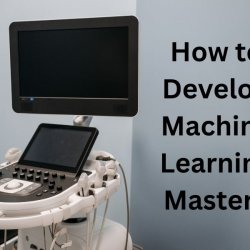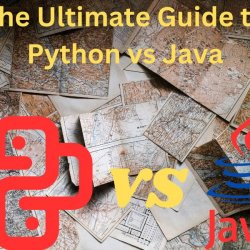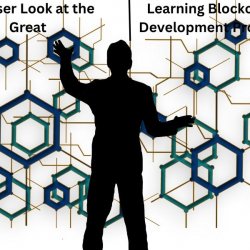What skills are required to be a Python Developer?

Introduction
Python development is an exciting and growing field for those pursuing a career in software engineering. In this article, we will be discussing the skills needed to become a successful Python developer.
First off, it is important that you have a strong understanding of program design when it comes to coding and developing with Python. You need to have an understanding of how programs are structured so that they’re efficient, readable, and reusable. Understanding coding logic and algorithms is also key as it helps you optimize code performance. Being comfortable with object-oriented programming principles can also help make your effective code more versatile and maintainable.
In addition to knowing program design and coding principles, you must understand software engineering practices such as unit testing, code reviews, and version control. Familiarity with common Python libraries is also essential for any Python developer as they provide powerful features that greatly increase development velocity. It’s also important to be familiar with web development frameworks so that you can create dynamic websites or web apps using Python.
Finally, staying current on industry trends and technological advancements will ensure that your experience remains cutting-edge. Keeping current with the latest releases of frameworks like Django or Flask will allow you to build advanced applications quicker than ever before. Becoming an active member of the developer community can also help open up new opportunities for collaboration and growth as a developer.
Basics of Python Programming
A Python developer knows the popular programming language, Python, inside and out. If you are considering becoming a Python programmer, you must know the basics of the language to get started: syntax, object-oriented principles, data structures, and algorithms, libraries, and frameworks, debugging and troubleshooting, web development skills (such as HTML/CSS/JS), automation and scripting, and databases.
Let’s start by looking at syntax. Syntax in Python is straightforward to learn. It’s based on English grammar rules so it feels more natural than other programming languages like Java or C++. The syntax also eliminates many of the small details that often trip up beginner programmers such as extra brackets or semicolons.
Python is an object-oriented programming language so understanding object-oriented principles is essential for becoming a successful developer. Object-oriented programming allows developers to break down complex problems into smaller pieces that can be solved individually. Writing code using OOP techniques will also make programs easier to maintain in the future by dividing them into different classes with specific responsibilities.
Data structures are an important part of any program because they determine how information is stored and retrieved from memory. When working with Python you’ll need to be familiar with data types like lists, dictionaries, tuples, and sets as well as sorting algorithms like quicksort or heapsort that can help you find specific elements quickly in large datasets. You should also have experience with basic algorithms such as searching an array for a given item or finding the shortest path between two nodes in a graph. Check Out:-Reviews
Understanding Data Structures and Syntax
Data structures are the foundation for any programming language, including Python. You’ll need to be familiar with objects like arrays, dictionaries, and linked lists to write efficient programs. Understanding the syntax rules of Python will also help you quickly troubleshoot issues and understand code written by others. Furthermore, understanding algorithms like sorting and searching algorithms can help your code run faster with fewer resources used.
Time complexity is another important concept for Python developers to understand. This measures how long it takes for a program or algorithm to finish running something that’s essential for writing efficient code. Revisiting topics such as algorithmic problem-solving and debugging techniques can help you learn more about time complexity and become more productive as a programmer.
Implementing Object-Oriented Programming Principles
Are you looking to become a proficient Python developer? If so, understanding and implementing object-oriented programming (OOP) principles is an essential step in the process. OOP is a versatile programming approach that allows developers to model complex problems using encapsulated objects and classes. In this blog, we’ll discuss the fundamentals of OOP so that you can learn the skills required to become a successful Python developer.
To implement OOP principles in Python, you’ll need to become familiar with the concepts of object-oriented design as well as specific programming principles. These concepts include abstraction, encapsulation, inheritance, and polymorphism, just to name a few. At its core, OOP involves designing objects that also contain data and define behavior. Programming principles like interfaces and mixins can help you create class structures that are more efficient and reusable. By utilizing SOLID principles of OOP such as object composition, you’ll be able to maintain flexibility in your code while improving its readability. Check Out:-AI reviews
Working with Frameworks and Libraries
If you’re interested in becoming a Python developer, it’s important to understand the nuances of working with frameworks and libraries. Frameworks are generally comprehensive packages that provide structure for code. They often include a range of libraries, which are collections of prewritten code modules designed to perform specific tasks. Familiarity with both frameworks and libraries is key to successfully developing Python applications.
When working with these tools, it is important to understand the syntax associated with them and how they can be used to solve problems. Understanding algorithms and functionality of packages can greatly assist with debugging and when working through complex tasks. Through experience, knowledge of how best to use frameworks and libraries will improve exponentially, allowing for more efficient problem-solving capabilities.
Apart from the frameworks and libraries themselves, it is also important to understand the API (Application Programming Interface) associated with each tool. The API allows the user to access application features from within their codebase for them to better integrate their program into an existing system or platform. Python developers need to have an understanding of both the structure of the packages they are working with as well as their respective APIs to effectively develop their applications.
Debugging and Optimizing Code Efficiency
As a Python developer, you must be skillful in debugging and optimizing code efficiency. Debugging is key in identifying errors, solving issues, and monitoring a program’s performance. Optimizing code efficiency can help reduce complexities in algorithms and refine your codebase for maximum effectiveness. While these skills are invaluable for every Python developer, here’s an overview of what you need to know to become an expert.
First, it’s important to understand debugging strategies. This involves gaining an understanding of how errors occur and why they affect your program’s performance. After detection, you should be able to isolate the problem and produce creative solutions that meet your requirements. Debugging should also involve bug-fixing paradigms such as unit testing or integration tests to introduce a more streamlined process for development cycles.
Next, it’s essential to maximize code efficiency with optimization techniques. This includes understanding how algorithms function, analyzing their complexity factors, refactoring sections of your codebase for better readability and runtime speedup improvements, testing the code against functional objectives, debugging any issues identified during testing, applying best practices while coding according to design specifications, and finally learning from experience so that similar mistakes are not repeated in future projects. Check Out:-Data Science Reviews
Testing, Troubleshooting, and Maintenance Skills
To become a successful Python developer, it is essential to possess a wide range of testing, troubleshooting, and maintenance skills. Having hands-on experience in this field helps you become an efficient problem solver and easily identify any errors or potential problems. Knowing how to debug effectively is also key as it enables you to identify the root cause of an issue quickly and efficiently.
It is important to be familiar with the various testing frameworks that exist, such as PyUnit, PyTest, and Unittest for unit testing or Selenium web driver for automation testing. Utilizing different software troubleshooting strategies will also give you an edge when tackling complex issues. It is advisable to learn about different maintenance protocols so you can keep your system properly up-to-date and secure. It’s also important to learn about version control systems such as Git and SVN so that you can keep track of changes made during the development process.
Quality assurance (QA) practices are also crucial in making sure that all code is running properly with no bugs or errors present. To ensure that your code performs well, you should understand different performance optimization methods such as caching, minification, refactoring, etc., which can drastically improve the speed of your program. Developing these skills will help make sure that your project runs smoothly and without any technical issues.
Achieving Professional Development in Python
Knowledge of the Python programming language is essential. You should familiarize yourself with the various syntaxes of Python and understand the basics such as variables, data types, and flow control. Additionally, knowing how to create loops and classes can give you an edge in developing more complex applications.
It also helps to have an understanding of web frameworks like Django or Flask as they are used quite regularly in Python development projects. Knowing how to use these frameworks can make developing web applications much easier as they provide structure on how to develop projects from start to finish.
Finally, having experience with databases is useful when developing large-scale applications that require persistent data storage and retrieval. Whether it’s MongoDB or MySQL, knowing database fundamentals such as joins and indexes will go a long way in getting your application running smoothly. Check Out:-Machine Learning Reviews






Ingen kommentarer endnu